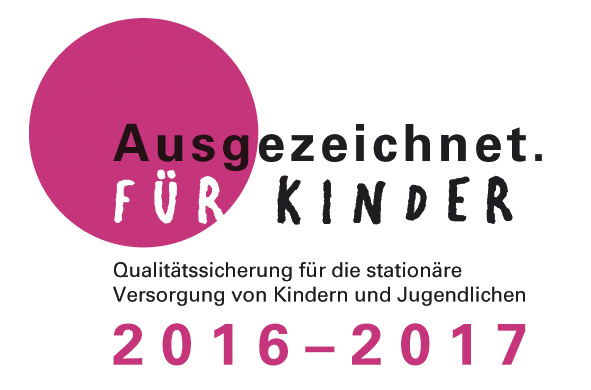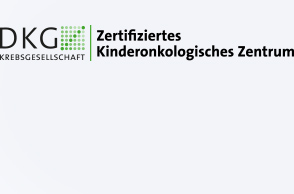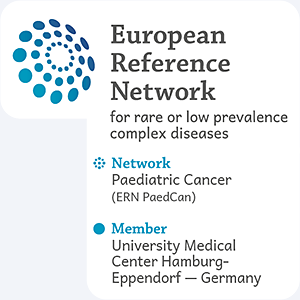HIT-MED Trial office
-
HIT-MED trial office
After leukemia, brain tumors are the second most frequent malignant disease in children and adolescents. There are approximately 400 patients diagnosed with a brain tumor every year. Although the chance of cure has increased during the last years significantly and today approximately 80% of the patients can expect long-term survival after diagnosis of a brain tumor in childhood, the results of current therapy are not satisfactory. While the survival still needs to be improved, at the same time the long-term side effects of both the disease and the treatment need to be improved.On behalf of the society for pediatric hematology and oncology (Gesellschaft für Pädiatrische Onkologie und Hämatologie, GPOH), the HIT-MED trial office coordinates clinical research projects on medulloblastoma, ependymoma and different other malignant, very rare brain tumors of childhood and adolescence.The HIT-MED trial office, we dedicate our work to
- the development and optimization of treatment concepts (operation, radiotherapy, chemotherapy) for patients with these brain tumors
- the development and maintenance of systems for central reference centers for children with brain tumors.
- counselling of physicians in participating centers in the treatment of the above mentioned brain tumors.
The HIT-MED trial office coordinates several clinical research projects:
SIOP Ependymoma II
SIOP High-Risk Medulloblastoma (HRMB)
PNET5
HIT2000
I-HIT-MED Registry
Neuropsychological co-studyThe German Reference Centre for CSF diagnostics is also located at the university medical centre in Hamburg:
German Reference Centre CSF diagnosticsThe HIT-MED trial office receives funding from the German childhood cancer foundation (www.kinderkrebsstiftung.de ), the "Fördergemeinschaft Kinderkrebs-Zentrum Hamburg e.V." (www.kinderkrebs-hamburg.de ) and the Damp-Foundation (www.damp-stiftung.de).
-
I-HIT-MED Registry (closed)
Not all patients with brain tumors can be included into clinical trials for various reasons. Either because such a trial is not available in the hospital the patient or his representatives have chosen or because patients prefer standard treatment. However, many of these patients are open to participate in research activities. Therefore, the HIT-MED trial office has opened an international registry for patients with
- Medulloblastoma
- Ependymoma
- Tumos of the pineal region.
Moreover, the I-HIT-MED registry database will help us when counselling physicians in how to select the optimal treatment for their patients.Please note that patient inclusion is currently not possible due to temporary suspension of recruitment.
-
SIOP Ependymoma II
SIOP Ependymoma II is a multicenter phase II/III clinical trial to optimize the therapy for children and adolescents with ependymoma. To be included, patients need to be no older than 21 years at initial diagnosis.
Pierre Leblond, Lyon, France, is the international coordinating investigator. For Germany, Stefan Rutkowski, Hamburg, Germany is the national coordinating investigator.
Patients will be stratified into different strata according to age, tumor localization and extent of resection, The aims differ according to the respective stratum:
Stratum 1:
In patients > 12 months of age and with complete tumor resection, can maintenance chemotherapy administered after standard radiotherapy reduce the risk of relapse?
Stratum 2:
In patients > 12 months of age and with relevant residual tumor, can the addition of MTX to VEC chemotherapy (MTX + VEC) provide a benefit compared to VEC chemotherapy alone?
In patients > 12 months of age and with relevant residual tumor, can a boost to the region of the residual tumor provide a benefit for the control of tumor growth? Which effects exhibits this boost on survival and quality of life?
Stratum 3:
In patients < 12 months of age, can the addition of Valproate to chemotherapy alone reduce the risk of relapse?
As secondary objective, questions on tumor biology and various late effects (e.g. quality of survival, neuropsychological follow-up) will be addressed.
EudraCTNr: 2013-002766-39
ClinicalTrials.gov ID: NCT02265770
-
SIOP High-Risk-Medulloblastoma (HRMB)
SIOP HRMB is a multicentric phase III clinical trial to optimize the therapy of children and adolescents with high-risk medulloblastoma. To be included, patients need to be older than 3 years of age at initial diagnosis.
Simon Bailey, Newcastle upon Tyne, Great Britain, is the international coordinating investigator. For Germany, Stefan Rutkowski, Hamburg, Germany is the national coordinating investigator.
HRMB is designed to answer two main questions:
- Can the outcome in children and adolescents with HRMB be improved over standard therapy (conventional (once a day) radiotherapy (RT)) for those treated with:
- hyperfractionated-accelerated radiotherapy (HART), or
- high-dose therapy (HDT) with thiotepa followed by conventional RT?
- Is the outcome in HR-MB is different for those treated with two different maintenance chemotherapy therapies?
As secondary objective, questions on tumor biology and various late effects (e.g. quality of survival, neuropsychological follow-up) will be addressed.
EudraCTNr: 2018-004250-17
- Can the outcome in children and adolescents with HRMB be improved over standard therapy (conventional (once a day) radiotherapy (RT)) for those treated with:
-
PNET 5
PNET5
Patient recruitment has been completed as of 06.04.2022 and no more patients can be included.
PNET5 is a prospective multicenter phase II/III clinical trial to optimize the therapy for children, adolescents and young adults with non-metastatic standard risk medulloblastoma (PNET 5 MB-SR), WNT medulloblastoma (PNET 5 MB-LR, PNET 5 MB –WNT-HR), or SHH medulloblastoma with TP53 mutation (PNET 5 MB – SHH-TP53 arm). To be included, patients need to be older than 3 or 5 years, depending on histological medulloblastoma subtype.
Stefan Rutkowski, Hamburg, Germany and François Doz, Paris, France are principal investigators of this trial, the sponsorship has been taken over by the University Medical Center Hamburg-Eppendorf, Hamburg, Germany.
PNET5 is designed to answer two main questions:- Is it safe to reduce the intensity of therapy in patients with low-risk medulloblastoma,as measured by the rate of relapse-free survival?
- Does carboplatin given simultaneously to the postoperative radiotherapy in patients with standard-risk medulloblastoma increase the relapse-free survival compared to radiotherapy alone?
As secondary objectives, questions on tumor biology and various late effects (e.g. quality of survival, neuropsychological follow-up) will be addressed.
EudraCTNr: 2011-004868-30
ClinicalTrials.gov ID: NCT02066220
-
HIT 2000
HIT2000 and PNET4
HIT2000 was a multicentric clinical trail for children, adolescents and young adults with medulloblastoma, ependymoma or CNS-PNET. PNET4 was an international arm of HIT2000 for patients older than 4 with localized medulloblastoma.
HIT2000 was open from Jan 1st, 2001 to Dez 31st, 2011 in up to eight European countries. More than 150 pediatric oncology centers registered more than 1300 patients in that period into one of the nine treatment strata. Besides the impact of other unifying international activities, HIT2000/PNET4 was a further step into the current fruitful European collaborations in brain tumor research.
The different treatment strata of HIT2000 are currently in different stages of evaluation. While for some arms, results have been published, others still need to be evaluated within the next years.Selection of publications from HIT2000:
Rutkowski S, Gerber NU, von Hoff K, Gnekow A, Bode U, Graf N, et al. Treatment of early childhood medulloblastoma by postoperative chemotherapy and deferred radiotherapy. Neuro Oncol 2009;11(2):201-10.Lannering B, Rutkowski S, Doz F, Pizer B, Gustafsson G, Navajas A, et al. Hyperfractionated versus conventional radiotherapy followed by chemotherapy in standard-risk medulloblastoma: results from the randomized multicenter HIT-SIOP PNET 4 trial. J Clin Oncol 2012;30(26):3187-93.
Lannering B, Rutkowski S, Doz F. HIT-SIOP PNET-4 - A randomised multicentre study of hyperfractionated (HFRT) versus standard radiotherapy (STRT) in children with standard risk medulloblastoma. Neuro Oncol 2010;12(6):ii5.
Friedrich C, von Bueren AO, von Hoff K, Kwiecien R, Pietsch T, Warmuth-Metz M, et al. Treatment of adult nonmetastatic medulloblastoma patients according to the paediatric HIT 2000 protocol: a prospective observational multicentre study. Eur J Cancer 2013;49(4):893-903.
Friedrich C, von Bueren AO, von Hoff K, Gerber NU, Ottensmeier H, Deinlein F, et al. Treatment of young children with CNS-primitive neuroectodermal tumors/pineoblastomas in the prospective multicenter trial HIT 2000 using different chemotherapy regimens and radiotherapy. Neuro Oncol 2013;15(2):224-34.
Friedrich C, Muller K, von Hoff K, Kwiecien R, Pietsch T, Warmuth-Metz M, et al. Adults with CNS primitive neuroectodermal tumors/pineoblastomas: results of multimodal treatment according to the pediatric HIT 2000 protocol. J Neurooncol 2014;116(3):567-75.
-
Neuropsychological co-study
Neuropsychological co-study
Within the neuropsychological co-study, patients with medulloblastoma, ependymoma and CNS-PNET receive neuropsychological assessments if they were between 0 and 21 years at diagnosis and were registered to one of the clinical trials or clinical registered organized by the HIT-MED trial office. The assessments include tests for problems with concentration, fine motor skills or memory. The results are combined with the clinical data obtained during the treatment course and analyzed systematically in order to quantify post-treatment neuropsychological outcome of the patients and to identify potential risk factors that have influence on the outcome.
Additionally, patients and their families receive a detailed report on their test results. This results includes recommendations on how to improve school / professional and everyday reintegration and discusses options on where to find further support, if necessary.
-
CSF-cytology shipping form
-
German Reference Centre CSF-cytology
German Reference Centre CSF-cytology
Since 2009, the German Reference Center CSF cytology is located at the University Medical Center Hamburg-Eppendorf. Since October 2022, it is led by Prof. Dr. med. U. Schüller, department of Neuropathology.
The German Reference Center for CSF cytology evaluates the CSF cytology of children diagnosed with malignant brain tumors, with the aim to improve the diagnostic quality by an independent review of local results.
The results obtained by the German Reference Center for CSF diagnostics are also used in a variety of clinical trials for children with malignant brain tumors.
Contact:
German Reference Centre for CSF-cytology
Institut für Neuropathologie
Prof. Dr. med. U. Schüller
Haus O38
Martinistraße 52
20246 HamburgFAX: 040-7410-54929
-
Contact: HIT MED trial office
Contact: HIT MED trial office
Postal address:
University medical center Hamburg-Eppendorf
Department for pediatric hematology and oncology
Martinistraße 52
20246 Hamburg
GermanyCoordinator:
Stefan Rutkowski, MD
Professor of pediatric oncology
s.rutkowski@uke.de
Phone:+49 (0) 40 7410 - 54270 Deputy Coordinator:
Martin Mynarek, MD
m.mynarek@uke.de
Phone:+49 (0) 40 7410 - 53394 Trial physician:
Denise Obrecht-Sturm, MD
d.obrecht-sturm@uke.de
Phone:+49 (0) 40 7410 - 52741
Mina Langhein
mi.langhein@uke.de
Phone:+49 (0) 40 7410 - 52741 Trial management:
Regine Riechers
r.riechers@uke.de
Phone:+49 (0) 40 7410 - 56776
Fax: +49 (0) 40 7410 - 58300Documentation:
Susanne Becker
Antje Stiegmann
hitchem@uke.de
Phone: +49 40 7410-58200
Fax: +49 40 7410-58300Neuropsyhological co-study
Anne Rossius (geb. Neumann-Holbeck)
a.rossius@uke.de
Phone:+49 (0) 40 7410 - 56222
Fax: +49 (0) 40 7410 - 58300
Lisa Bußnius, PhD
l.bussenius@uke.de
Phone:+49 (0) 40 7410 - 56222
Fax: +49 (0) 40 7410 - 58300German reference centre for CSF-cytology
University medical Centre Hamburg Eppendof
Institute for neuropathology
Prof. Dr. med. U. Schüller
Haus O38
Martinistraße 52
20246 Hamburg
Germany
Tel.:+49 (0) 40 7410 - 53222
Fax: +49 (0) 40 7410 - 54929



